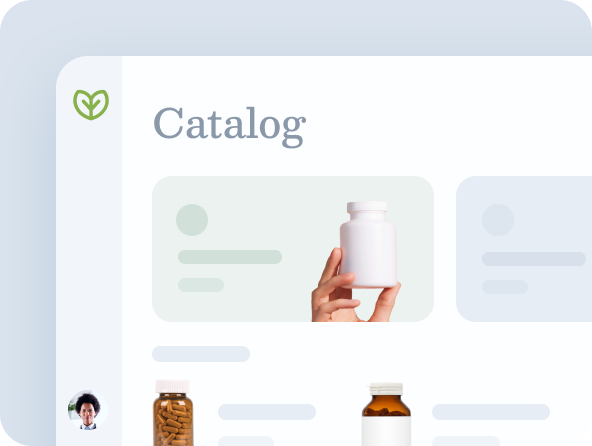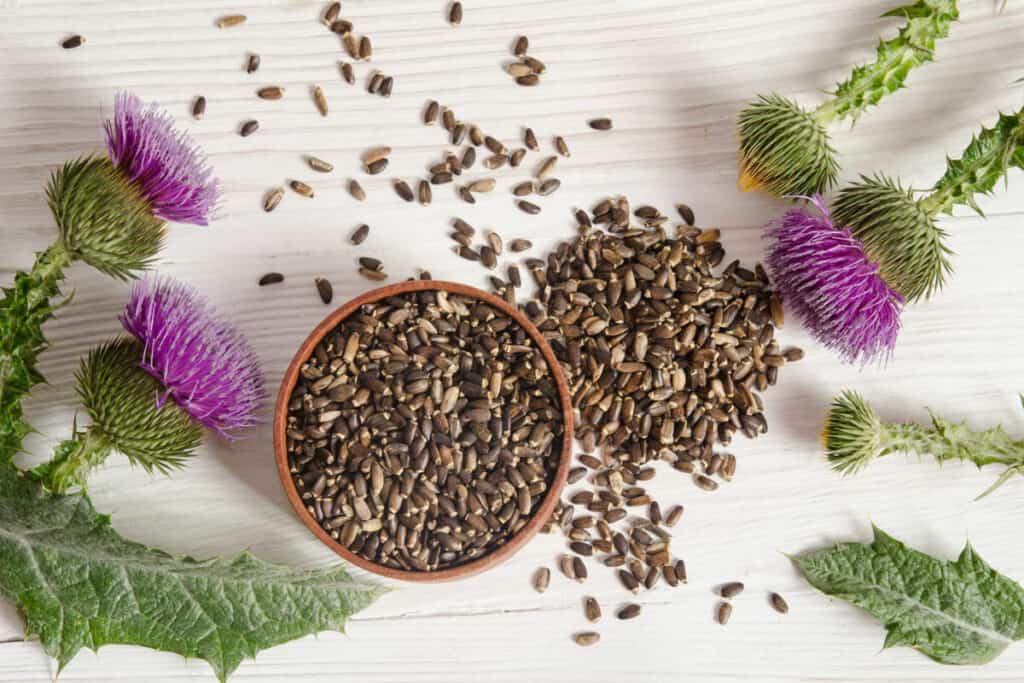Milk thistle seed extract (Silybum marianum) is an herbal remedy commonly used to support liver health. To get the most benefit from milk thistle extract, it is important to choose the right form. Keep reading to learn more about the best milk thistle supplements and how they can support liver health.
Ready to start delivering better patient care?

Milk thistle supplements for healthy liver function
Milk thistle seed has been found to protect the liver against toxins and reduce the risk of chronic liver diseases, with scientific research suggesting it has anti-cancer, anti-diabetic, and cardioprotective effects. One study found that taking milk thistle extract led to a reduced mortality rate among patients with alcoholic liver disease by 50%. (7) Milk thistle extract also has antioxidant effects that may help decrease inflammation and protect the liver from damage. (6)

Finding the best milk thistle supplement
Milk thistle has been used medicinally as a natural remedy for thousands of years and its bioactive compound, silybin, has been studied extensively for its ability to support liver health. (2) However, studies also indicate that when taken orally, silybin from milk thistle extract is not well absorbed. (3) Silybin’s bioavailability can be improved significantly by combining milk thistle extract with phosphatidylcholine to create a milk thistle phytosome. (2)
Milk thistle phytosome
Phytosome technology envelops the herb to create a cell-like structure that can effectively deliver the plant and its active compounds through the gut, protecting it from destruction by gastric secretions and gut bacteria, which enhances the bioavailability of the plant. In addition to enhanced absorption, the phosphatidylcholine in the phytosome is also hepatoprotective, offering a synergistic effect when combined with milk thistle. (1)
According to a 2019 prospective, blinded, two-way crossover study featuring 23 healthy volunteers, silybin phytosome demonstrated superior bioavailability compared to a non-phytosome silymarin extract. (4)

What to look for when buying milk thistle supplements
To ensure you choose the best milk thistle supplement with the highest bioavailability possible, be sure the label indicates that the herb has been combined with phosphatidylcholine to create a phytosome. In the form of a dietary supplement, the product can be called milk thistle phytosome, silymarin phytosome, or silybin phytosome.
In addition to milk thistle, phytosome technology is used with other supplements and herbal extracts such as Ginkgo biloba, grape seed, hawthorn, and others to enhance absorption of the active compounds found in these plants. (1)
Standardization is a way to ensure that the product has the highest percentage possible of the active compounds found in the plant. Standardized milk thistle phytosome is generally well tolerated, with many of the studies featuring a milk thistle product standardized to contain 70 to 80% silymarin. (5)
The bottom line
Milk thistle extract is a powerful supplement that can has many benefits, especially in supporting liver function. The key to choosing the best milk thistle supplements is to look for a standardized silymarin phytosome.
If you’re a patient, consult your integrative healthcare practitioner before taking milk thistle extract supplements.
Ready to start delivering better patient care?

- Bhattacharya, S. (2009). Phytosomes: the new technology for enhancement of bioavailability of botanicals and nutraceuticals. International Journal of Health Research, 2(3), 225-232.
- Bijak, M. (2017). Silybin, a major bioactive component of milk thistle (Silybum marianum L. gaernt.)—chemistry, bioavailability, and metabolism. Molecules, 22(11), 1942.
- Kidd, P., & Head, K. (2005). A review of the bioavailability and clinical efficacy of milk thistle phytosome: a silybin-phosphatidylcholine complex (Siliphos). Altern Med Rev, 10(3), 193-203.
- Mendez-Sanchez, N., Dibildox-Martinez, M., Sosa-Noguera, J., Sanchez-Medal, R., & Flores-Murrieta, F. J. (2019). Superior silybin bioavailability of silybin-phosphatidylcholine complex in oily-medium soft-gel capsules versus conventional silymarin tablets in healthy volunteers. BMC Pharmacology and Toxicology, 20(5).
- Rainone, F. (2005). Milk thistle. American Family Physician, 72(7), 1285-1288.
- Surai, P. F. (2015). Silymarin as a natural antioxidant: an overview of the current evidence and perspectives. Antioxidants, 4(1), 204-247.
- Tamayo, C., & Diamond, S. (2007). Review of clinical trials evaluating safety and efficacy of milk thistle (Silybum marianum gaertn.). Integrative Cancer Therapies, 6(2), 146-157.





